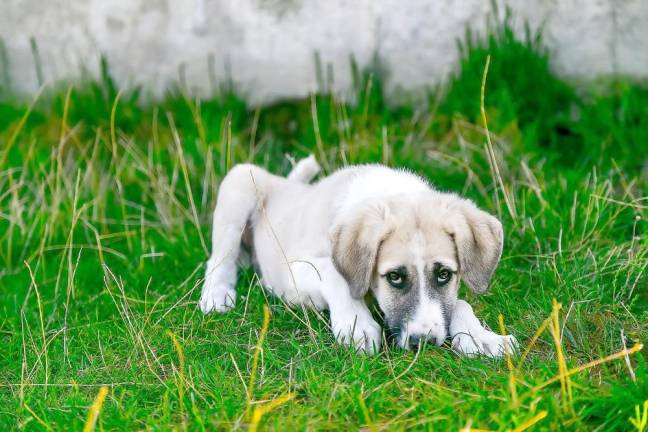Enjoy Easter, but protect your pet
Easter egg hunts can be hazardous for pets, says a vet clinic spokesperson.

Easter eggs, real or fake, can be hazardous to animals. Plastic egg shards, if ingested, can cause choking, GI irritation, and/or intestinal blockage, which sometimes requires surgery. If forgotten and later consumed, real eggs can spoil and cause GI upset.
Chocolate too can be a problem. Theobromine and caffeine in cocoa cause hyperactivity, vomiting, diarrhea, lethargy, elevated heart rate and seizures. If your pet gets into the Easter chocolate, call a vet immediately, with as much information as possible about the type of chocolate (milk, dark, semisweet, baker’s, etc.) ingested
Easter grass is not edible. Plastic Easter grass cannot be digested by pets, which means that, if consumed, it can get stuck in the GI tract and wreak havoc. Signs to look out for include vomiting, diarrhea, loss of appetite, lethargy and stomach pain. A safer, more eco-friendly alternative for Easter baskets is colored tissue paper.
Xylitol poisons pets. Found in gum, candy and peanut butters, this artificial sweetener can cause seizures, reduce blood sugar levels and cause liver failure. If ingested, call your veterinarian immediately.
Easter flowers can be problematic for animals. The leaves, flowers, stem and pollen of Easter Lilies are poisonous and can cause acute kidney failure in cats, which can be fatal. Symptoms include vomiting, loss of appetite and lethargy. Other toxic spring/Easter flowers to avoid include Daffodils, Azaleas, Bluebells, Tulips, Calla Lilies, Hyacinths, Lily-of-the-Valley and Peace Lilies.
Candy wrappers: Ingested wrappers, foils and lollipop sticks can lead to choking and/or intestinal blockage, as well as, more rarely, poisoning.